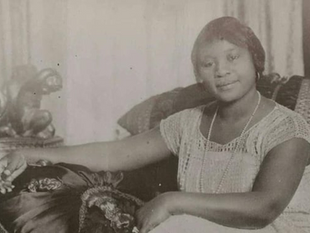

Lost Fortunes: The Wealthy Black Women Who Built Empires Before the Civil Rights Movement—And Where Their Wealth Went (Part 1 of 28)
Feb 1
2 min read
1
23
0
History remembers the triumphs of self-made millionaires like Madam C.J. Walker and the quiet power of real estate moguls like Bridget “Biddy” Mason, yet few ask the pressing question: Where did their wealth go?

Before the Civil Rights Movement in the U.S.,* a remarkable group of Black women defied systemic racism and gender barriers to amass wealth in industries ranging from beauty and banking to real estate and entertainment. They built thriving businesses, established banks, and shaped communities, proving that Black economic success was not only possible but sustainable. Some inherited wealth through land and oil rights, while others fought for financial independence against all odds.
Yet, despite their success, much of their wealth did not survive into the modern era. Was it lost to discriminatory policies like redlining and Jim Crow laws? Did legal loopholes, predatory financial practices, or government seizures strip their families of generational wealth? Or did their descendants face challenges that made it difficult to maintain these fortunes?
These questions must be answered in order to create a clear path to remedy the wealth gap. The intent of this series is to uncover the stories of the wealthiest Black women in America before President Lyndon Johnson signed the Civil Rights Act on July 2, 1964.
We will highlight their achievements in business and industry while questioning the fate of their fortunes so that current and future generations may arm themselves with information, knowledge, and financial strategies to truly understand how generational wealth can be procured and protected. By retracing their financial legacies, we seek to answer an urgent question: Why haven’t more of these extraordinary women’s descendants retained their economic power today?
This Black History Month 2025, we honor the lives of over 20 remarkable women. Their stories will help us examine both their achievements and the systemic factors that have contributed to the generational wealth gap in Black America, thereby hindering economic progress, job creation, and reducing the U.S. GDP by as much as 2%.
—------------------------------------------------------------------------------------------
*The civil rights movement was a social movement and campaign in the United States from 1954 to 1968 that aimed to abolish legalized racial segregation, discrimination, and disenfranchisement systematically targeted towards African Americans. The Civil Rights Act of 1964 sought to remedy this by prohibiting discrimination on the basis of race, color, religion, sex or national origin. Provisions of this civil rights act forbade discrimination on the basis of sex, as well as, race in hiring, promoting, and firing.
Join Us!
This is a financial education series of The New LaVilla, a historic landmark restoration project in north Florida. To learn more about the project, sign up for our newsletter at www.thenewlavilla.com, follow our page on LinkedIn and social media @thenewlavilla.



